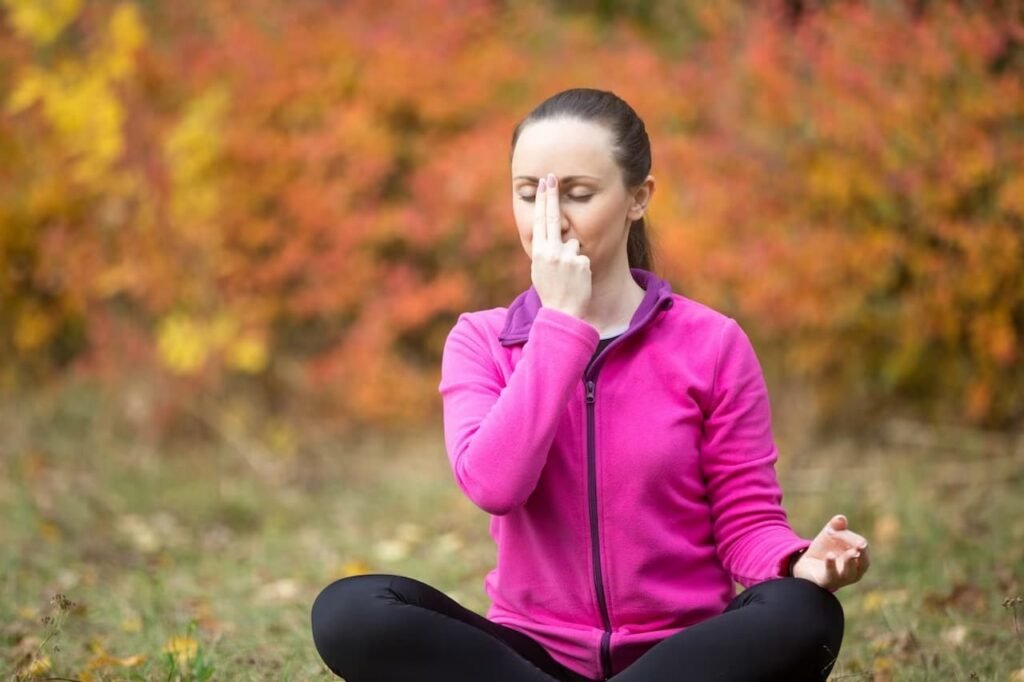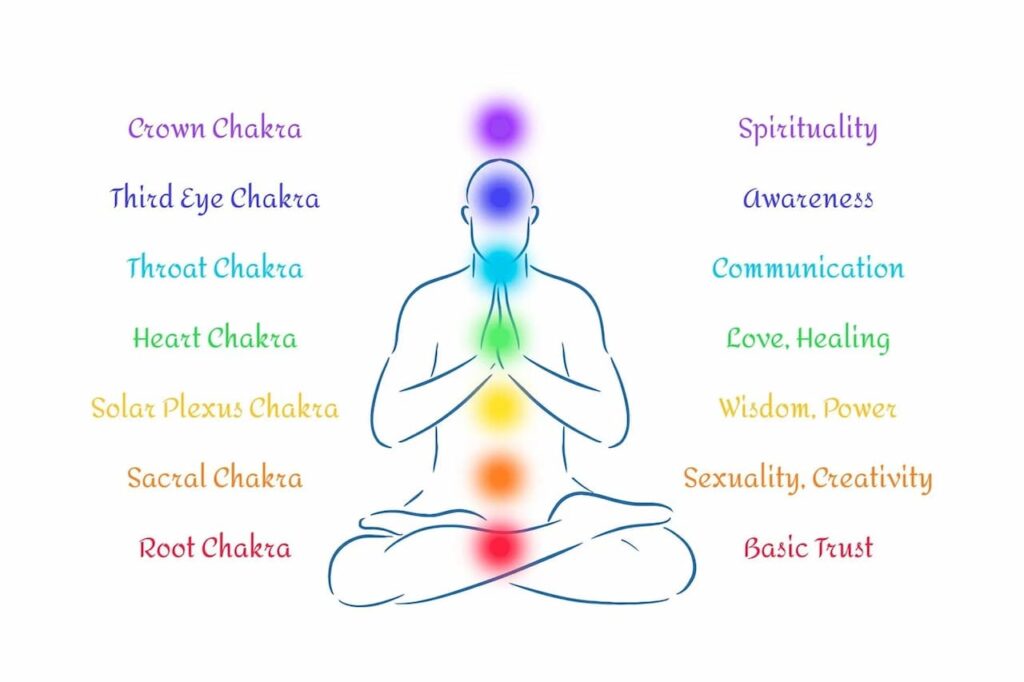Talk to a Psychologist for Online Counselling
Book Appointment Now 100% Private & Secure
Convenient, 100% anonymous, safe, certified professional counseling online.“Be happy in the moment; that’s enough. Each moment is all we need, not more.” – Mother Teresa
The moment you say you are going through stress or just any health condition, the first suggestion that comes from everyone is to practice meditation and get mindfulness sessions. The word mindfulness is the hottest buzzword in the realm of mental health. It’s all over the tongue as if everyone is knowledgeable about the subject. There is a myriad of documents, books, videos, and gyan from various experts praising meditation and the ways it can help individuals overcome anxiety, stress, and depression problems. The term mindfulness or meditation is two sides of one coin and can be used in conjunction.
It’s a condition of being completely focused and present with the present moment free of distractions or judgement. It is the act of intentionally paying focus to your thoughts, feelings, and feelings in a non-judgmental manner. It is typically related to various practices, such as meditation, however it is also a practice every day by focusing on what is happening in the moment at hand, detaching yourself from any distractions, and bringing attention to your thoughts and emotions.


5 Mindfulness Techniques to reduce depression, stress, and anxiety
Mindfulness has been proven to be a method that has a wide range of benefits for mental as well as physical health, including better concentration and focus, fighting addictions and other issues, as well as improving emotional control. It has proven to be a valuable method that provides reliable results for treating a variety of mental health problems including, ADHD and bipolar disorder mental disorders GAD (generalized anxiety disorder) SAD (social anxiety disorder) and issues with anger management, and many others to go more. It assists in dealing with negative emotions and thoughts more effectively by accepting them and getting rid of them.
Below are 5 mindfulness exercises that can help ease anxiety, stress, and depression:
1. Mindfulness Breathing
The breath is an essential practice of mindfulness that requires being aware of the sensation of air flowing into the body and then out while inhaling and exhaling. This practice can be performed anytime, in any location, and can be a great way to relax your mind and ease anxiety and stress.
Mindful breathing is a method that requires being aware of the present moment, and accepting the thoughts and feelings of one’s self without judgement. It is an effective method of managing anxiety and stress because it assists people in becoming more aware of their physical symptoms and emotional reactions, allowing them to recognize and address the root cause of their anxiety and stress.
In addition, mindful breathing practice can aid in developing better emotional control, allowing you to manage anxiety and stress in a calm and controlled way. In time, consistent mindfulness will lead to substantial improvements in emotional and mental well-being.
It’s an effective method to manage stress and anxiety and promote overall well-being and health. By focusing on the present and accepting their thoughts and feelings with no judgement, people can build more self-awareness and emotional strength and lead an enjoyable and fulfilling life.


How to practice mindful breathing?
Close your eyes and breathe in deeply and exhale slowly. The practice is to observe your breath, without trying to alter it, but simply take note of the body sensations when you breathe in and out. If your mind wanders as is inevitable, you gently redirect your attention to your breath without judgment or criticism. This can help relax your mind and decrease anxiety and stress.
By practicing mindfulness this way you will increase your consciousness and acceptance of feelings and thoughts. This will allow you to be more aware of the messages your body is sending to you, and also to identify the root of anxiety and stress.
2. Body scan meditation
This method can alleviate anxiety and depression as it can focus your attention on a broader range of positive thoughts and feelings and focus on your body. By paying attention to your body and its physical sensations and sensations, you will be more grounded and present in the present which will help lessen anxiety and stress.
Additionally, the body scan meditation practice will help you develop an increased awareness of your body and acceptance. When you accept the feelings and tensions that you feel in your body, without judgment or resistance, you will be able to be more understanding of yourself and cultivate a deeper self-care mindset.


How to practice body scan meditation?
Beginning from the highest point at the top of your head pay attention to each section of your body and pay attention to any discomforts or points that are tense. This technique can increase awareness of your physical sensations, and decrease depression or anxiety. When you pay attention to everybody’s area, you can bring awareness to any physical sensations as well as areas where the tension that you may be experiencing.
3. Mindful walking
It is a different mindfulness method called “walking meditation.” It is about focusing your attention on the physical sensations in your body when you walk instead of losing yourself in your thoughts or being distracted.
Additionally, walking meditation is a type of exercise that has been proven to provide multiple mental and physical health advantages. Regular exercise can boost the health of your heart, decrease inflammation, and improve mood and cognitive performance.


How to practice mindfulness walking?
Go for a walk and pay attention to the sensations of your body while you walk. Be aware of your feet resting on the earth, the motion of your legs, and the sensation of the sun’s warmth or the wind on your skin. This exercise can help decrease stress and boost mood.
When you pay to the movements of your body while you walk, you’ll be more in the present and build a feeling of peace and calm. This can lessen anxiety and stress, and also improve your mood.
4. Gratitude practice
“Gratitude Practice.” It’s about consciously focusing your attention on the things in your life that are thankful for, including the health of your family members as well as your job or even your home. This method can help shift your attention from negative thoughts and feelings to positive ones, which can help in reducing anxiety and improving mood.
Research has proven that practicing gratitude can provide many benefits to mental health, including decreasing stress and improving mood. Focusing upon the good aspects of your daily life you can turn your focus away towards positive thoughts and emotions and build a feeling of well-being.
Additionally, practicing gratitude will help you develop an increased sense of perception and self-confidence. When you acknowledge the positive things happening in your life you will be more aware of the ways you are fortunate. This can aid in overcoming feelings of depression, negativity, or despair.


How to gratitude?
Make a point of taking a few minutes each day to think about the things you’re grateful for in the world. An exercise in gratitude can be done in a variety of ways including keeping your gratitude journal, writing thank you notes, or taking a few moments each day to think about the things in your life you are thankful for. In the end, gratitude is a straightforward but effective method to improve your mental well-being and health. Through cultivating a mindset of gratitude, you will be able to shift your focus to positive thinking and build a feeling of resilience when faced with every challenge that life throws at you.
5. Mindful eating
Mindful eating involves paying to the sensory experiences of eating, which includes the texture, taste, and scent of food. Make sure to eat mindfully paying attention to the texture, taste, and scent that your meals provide. This can allow you to be more present in the present and lessen the anxiety or stress that comes with meals or food. It can also assist you to develop a better appreciation for food and develop a more positive connection to food. This can help in weight loss and may be beneficial in cases of bulimia and anorexia (eating disorders).
In addition, eating mindfully can also help you be more conscious of your fullness and hunger signals, which will allow you to eat with more ease and avoid under or overeating. In the end, mindful eating is an easy, yet effective method to ease anxiety and stress associated with eating and food, as well as to build a more positive relationship with food.


How can you practice mindful eating?
For mindful eating Try eating food in a calm space that is free of distractions. Make sure to take time to enjoy every bite and pay attention to the taste of the food, its texture, and its aroma. Be aware of your body’s signals of fullness. You should eat at a pace that is pleasant and comfortable.
Final Word
The various mindfulness methods can be practiced on their own in conjunction with a planned program for mindfulness, such as the mindfulness-based approach to stress management (MBSR) as well as mindfulness-based cognitive therapy (MBCT). Like any mindfulness practice it is important to be consistent, so make sure to incorporate these techniques into your routine as much as you can.
Studies have shown that mindfulness practices can result in lower levels of anxiety and stress and also improve overall well-being. By paying attention to the present moment and accepting their thoughts and feelings oneself without judgment, people can become more aware of negative thought patterns and feelings and gain a positive perspective on life.


Additionally, mindfulness practices aid individuals in developing an increased awareness of themselves and self-compassion. This can increase resilience and an improved capacity to handle difficult situations. In the end, mindfulness training can be an effective method for improving your mental health and decreasing stress and anxiety.
Call us to book a session today.
Contact us at +91 9811335150
Email us – info@onlinecounselling4u.com
Follow us on Facebook or Instagram
Talk to a Psychologist for Online Counselling
Book Appointment Now 100% Private & Secure
Convenient, 100% anonymous, safe, certified professional counseling online.

